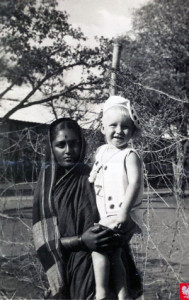
Courtesy of the Kresy-Siberia Virtual Museum
The Second Homeland
By Anuradha Bhattacharjee
SAGE Publications, New Delhi, 2012
In 1991, Anuradha Bhattacharjee was a rookie journalist in the Indian city of Pune assigned to work on the new local supplement of The Times of India. A few months into her new job, Bhattacharjee met a Polish lady who told her a very unlikely story about arriving in India during World War II as an orphan after being saved from starvation in Siberia. The family, it seems, was deported from Poland by the Soviets to the Gulag where thousands of Poles, including her parents, had perished. Intrigued by this, the young journalist presented her notes on this gripping and tragic tale to her superiors who promptly threw the story out and ridiculed her for falling for such a fantasy. Since the victims were not Jewish and the oppressor not Nazi Germany, she was unable to place Polish Catholic victims of Soviet persecution into “any known historical perspective.” Reluctantly, she gave it up.
Ten years later, Bhattacharjee was working for a New Delhi newspaper, The Pioneer, and since she was for a time in the United States she used this opportunity to follow up on that Polish story. She visited the Holocaust Memorial Museum in Washington, located the sister of the Polish lady she first spoke to, and had a long conversation about that event. She got enough information to publish an article in Pioneer’s Sunday supplement, the Foray. The online version generated a lot of attention, including an offer to publish the book – if she could get a manuscript to the publisher in six months’ time.
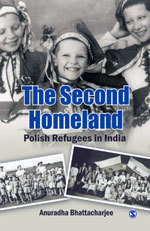 As soon as she was back in India she threw herself into more research for the book, a daunting task. Inquiries at history departments of several Indian universities produced no results – except for a suggestion to write to Professor Norman Davies. (She did, and, ever courteous, he replied.) Realizing that most documents she needed were in London, she turned to the internet to gather enough information to apply for a research grant. Among other things, she reached the Kresy-Siberia Virtual Museum and the helpful people who created it not only offered assistance but warm hospitality in London and Poland. She was launched, but much more than six months had elapsed. By this time, the publisher had lost interest and “sarcastically suggested that [she] pursue the subject as a PhD thesis.” So she did, and won the Bendre Prize for Best Dissertation (2006). The Second Homeland is the book based on her doctoral dissertation.
As soon as she was back in India she threw herself into more research for the book, a daunting task. Inquiries at history departments of several Indian universities produced no results – except for a suggestion to write to Professor Norman Davies. (She did, and, ever courteous, he replied.) Realizing that most documents she needed were in London, she turned to the internet to gather enough information to apply for a research grant. Among other things, she reached the Kresy-Siberia Virtual Museum and the helpful people who created it not only offered assistance but warm hospitality in London and Poland. She was launched, but much more than six months had elapsed. By this time, the publisher had lost interest and “sarcastically suggested that [she] pursue the subject as a PhD thesis.” So she did, and won the Bendre Prize for Best Dissertation (2006). The Second Homeland is the book based on her doctoral dissertation.
The Second Homeland is the story of the group of Poles who, having been deported to the Gulag by the Soviets, were settled in temporary camps in India after their escape from that “inhuman land” in 1942. They were part of a much larger group of some 50,000 civilians evacuated from the USSR together with the army of General Władysław Anders, the Polish II Corps that was to be based in the Middle East and fight under British command. Their odyssey ultimately spanned several continents, every segment of it marked by tragedy and uncertainty, but also by the unexpected kindness of strangers and their own indomitable spirit. This book focuses on the Indian sojourn of Polish children who rediscovered their childhood among people who were welcoming and kind, in a land of great beauty where exotic fruit and elephants were a part of the natural landscape.
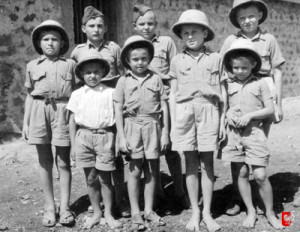
Polish children at the Balachadi camp
Courtesy of the Kresy-Siberia Virtual Museum
But Anuradha Bhattacharjee’s opening chapter begins with a much grimmer story, with Katyń, the murder of over 20 thousand Polish reserve officers held as POWs by the USSR. She notes Vladimir Putin’s invitation to Polish officials to commemorate the Katyń Massacre in April 2010, and Boris Yeltsin’s 1990 delivery to Warsaw the documents that definitively acknowledged Soviet responsibility for this crime. She makes clear that she is writing about one of the greatest unacknowledged war crimes, a violation of human rights that was compounded by a cynical cover-up of the massacre, and an official silence about the mass deportations to Siberia. Not a few of the children whose story she tells lost their father at Katyń.
That the author does so is indicative of her profound understanding of her subject. Bhattacharjee knows that while she is telling a heartwarming story about orphaned children welcomed by a loving Maharaja, their trauma runs deep. She never loses sight of these two strains of the narrative and this is what gives her book its power and beauty.
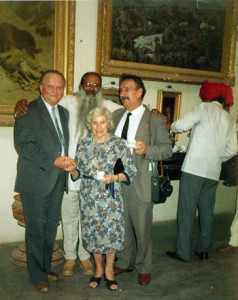
Mrs. Banasinska on the occasion of being honored by the Polish Government.
Following a brief historical background, the author moves on to 1941 when the plight of the Poles held captive in the USSR becomes known, a situation of no consequence to the Soviets, awkward for the British, and a humanitarian crisis for the Polish government-in-exile. Relief supplies are urgently needed and among the first to take action is Kira Banasinska, the wife of the Polish consul-general in Bombay (Mumbai) who immediately begins a campaign of awareness and fundraising.
Plans are made to send convoys overland from Quetta, in India (now Pakistan) via Meshed in northern Iran and into Turkmenistan and Kazakhstan, especially to orphanages. Ideally, the trucks should not return empty after unloading but should bring back to India as many children as possible. To this end the Viceroy of India set up The Polish Children’s Fund, with the continuing involvement of Banasinska and supported by the Archbishop of Delhi, the Mother Superior of the convent of Jesus and Mary, raising funds among private donors including the philanthropic Indian family, the Tatas. A British official, Captain A.W.T. Webb, administered the funds and also left behind an invaluable historical record.
At first there was some notion of placing the children in foster homes but the Polish government was opposed to separating the already traumatized children. Other options such as schools and convents proved unworkable.
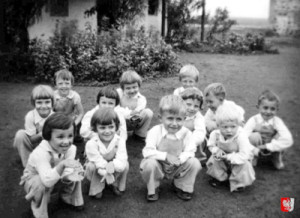
The youngest children at the Balachadi camp
Courtesy of the Kresy-Siberia Virtual Museum
India was then still ruled by Britain so obviously the Polish authorities turned to them for assistance, but imperial rule does not always allow for quick decisions. However, some princely states still enjoyed a level of autonomy and it was from one of these that the first offer of help – unencumbered by bureaucratic considerations and imperial priorities – came from the Maharaja Jam Saheb of Nawanagar. On hearing of the plight of the children he immediately offered to take in 500 – a figure he soon raised to 1000 – and built a camp for them on his seaside summer estate because he wanted the children to enjoy the pleasures of a beach. When the children arrived he greeted them saying he was “Bapu,” their father. When the war ended, “Bapu” adopted the children to prevent their forcible return to a Communist Poland ruled by Moscow, the very same regime that had deported them to Siberia in the first place.
The princely state of Kolhapur was the next to offer a site where a family camp, Valivade, was set up for some 5,000 people, mainly women and children. Bhattacharjee reports that several other sites were offered by other princely states but were turned down by the British who did not want the autonomous princely states to have any dealings with foreign governments. Indeed, Mrs. Banasinska’s request to have the young maharaja of Kolhapur officially open the camp was turned down, while the consul-general was denied admission in his official capacity. One suspected visit resulted in a memo stating: “We must draw his attention at once to the rules debarring States from corresponding directly with Foreign countries or inviting foreign consuls to the State without the P.D.’s (Political Department) approval.”
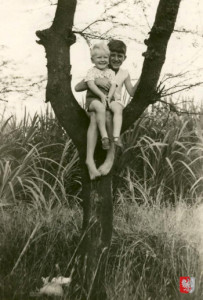
Courtesy of the Kresy-Siberia Virtual Museum
Valivade, though established by the Government of India, was funded by the legation of the Ministry of Labour and Social Services of the Polish government in London. It soon turned into a thriving community: the refugees planted gardens, put up Polish street signs, and established schools and a hospital. An Indian shopping syndicate set up several businesses providing groceries, fish and meat, cloth, stationery and, in time, even a cinema that screened one show daily.
Thanks to the Kresy-Siberia Virtual Museum, Bhattacharjee met and interviewed a great many “Polish Indians” and was given access to their diaries, letters and memoirs. She found a treasure in the beautifully written correspondence given to her by Franciszek Herzog, the youngest of three brothers whose father was murdered at Katyń and whose mother died of starvation in Kazakhstan. Seamlessly woven into the wealth of detail from her research, it adds to the story a gripping emotional intensity.
As the story unfolds, Bhattacharjee introduces an amazing cast of characters. Kira Banasinska and her husband, unable to return to Poland, lived out their lives in India, a country they came to love. She lived to see Poland free again and received Poland’s highest civilian honour for her work on behalf of the children. Hanka Ordonówna, the beautiful cabaret star of prewar Poland, cared for the children at the orphanage in Ashkabad and traveled with them in the first convoy to India. Wanda Dynowska, a theosophist and an authority on Indian history and culture who had moved to India in 1935 and was given the name Umadevi by Gandhi, enriched the children’s lives by introducing them to Indian history and even to Gandhi himself.
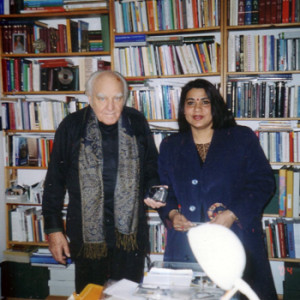
Author Anuradha Bhattacharjee with Father Zdzisław Peszkowski in Warsaw
At first, some Poles found Umadevi, with her sari and theosophist views, a bit too exotic for their tastes, but she was much loved. Fr. Zdzisław Peszkowski, at that time a Scoutmaster at Balachadi and Valivade whom the author met in Warsaw, recalled meeting Umadevi and another Polish Theosophist and Gandhian, Maurycy Frydman. He found their discussions “enriching” and his visit to an ashram was an experience he never forgot. By contrast, the officious Captain Webb described Umadevi as “a certain crack-brained Pole of feminine gender who has turned theosophist, [and] apes Indian dress…”
We encounter British officials, some who cared about the humanitarian crisis and others who were indifferent, including Captain Webb in whom the author detected “unwarranted hostility” towards the Polish refugees. Indeed, she points out, the Poles were often treated more “as enemy than as ally,” and not as well as German POWs.
It is really the Indian people that the Polish children of Balachadi have in mind when they say: “India is my second homeland,” and “Balachadi was the happiest time of my childhood. How can we ever repay the kindness we received?”
Kindness like this can never be repaid, it can only be acknowledged, and serve as an example. There is, today, a public square in Warsaw named for “the good Maharaja” and a school named in his honour; and among the many reunions of the “Polish Indians” some have taken place in India attended not only by officials but also by drivers, cooks, fruit and vegetable vendors, and others who recalled those times fondly. Some could still remember a bit of Polish.
Anuradha Bhattacharjee has written a marvelous book, rich with detail from archival sources, oral history, and letters and memoirs of the time. She has a natural understanding of people who have known oppression and her contacts with “Polish Indians,” whether in London, Poland or Australia, seem to be touched by the same warmth and affection that Indians and Poles shared during the war.
The Second Homeland is a must read. It seems a quibble to point out an error that is no doubt an accidental slip. The dates of the Warsaw Uprising and subsequent Soviet incursion are wrong and should be corrected for the next printing. And I sincerely hope and believe there will be another printing. It’s a fascinating, exciting, moving but virtually unknown story from WWII. Highly recommended.
CR
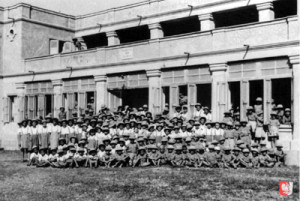
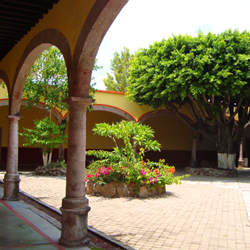
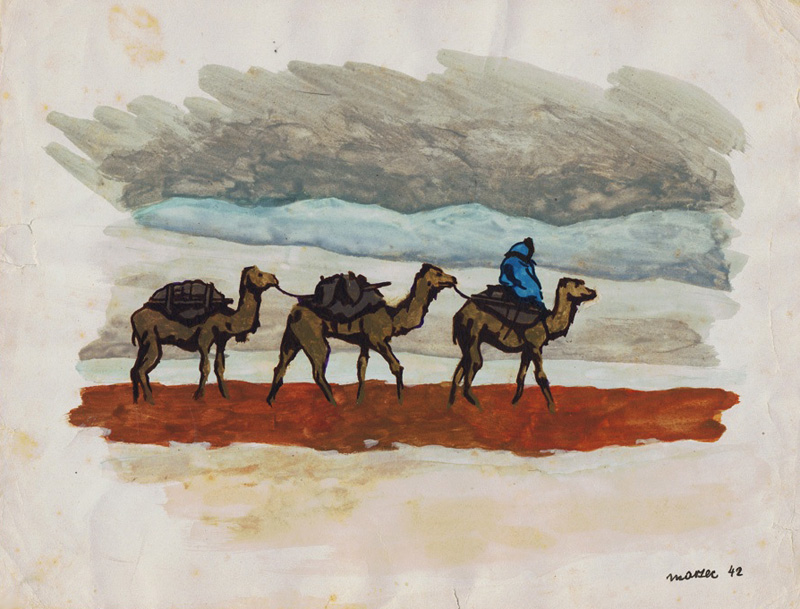
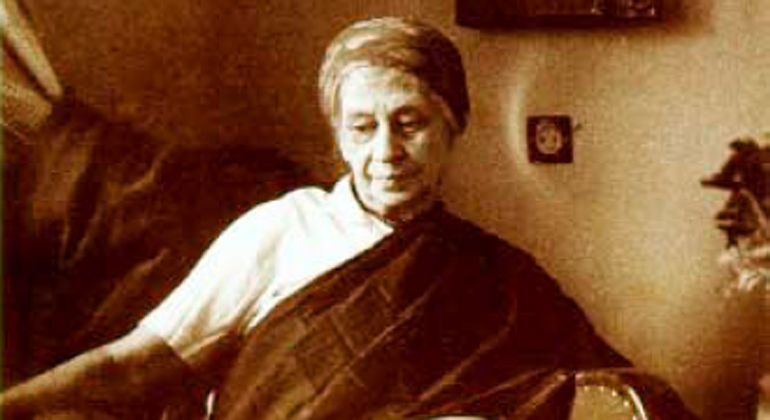
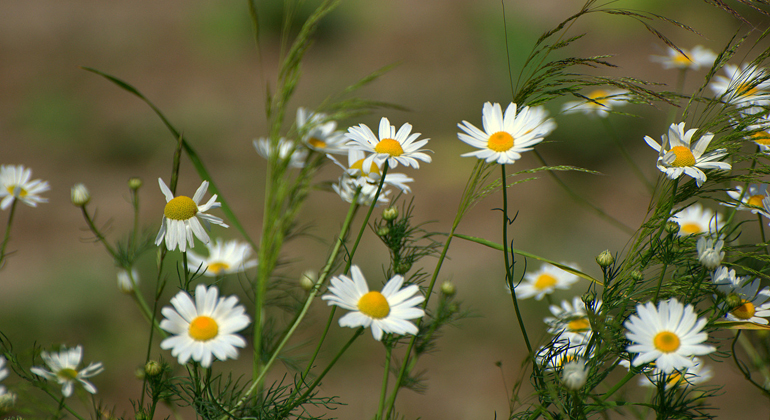
Pingback: Polish refugees in India during World War Two - City-Data Forum
I was sent to Poland in 1960 for six months to start up a new kwh meter factory in Bombay. During the sixties, I met 3 Polish ladies in and around Bombay (one of them – Danusia) but was unfortunately told very little and was myself unaware then of the relevant history. Could have learnt so much directly!
Pingback: Once Upon a Time in Africa…
Pingback: February 1940: Exile, Odyssey, Redemption
Would love to read this book. My mother was one of the people along with her family sent to Siberia. She talked about convoys picking up children and women in Kazakstan and taking them to India. She eventually herself went to India and worked for a while in an orphanage. Her brothers and sisters were very young then, two boys, two girls, and separated from their parents who had stayed behind in Iran. She was reunited with them, and we have a few photographs of them in India at that time.
My Mother ( Regina Aleksandra Tabaczynski nee Tyjewska )and her parents were amongst the approximately 1.7 million Poles deported to Siberia in 1940. Later being sent to Central Asia and in 1942 to Tehran Persia, Karachi and finally to Kolhapur where my Grandfather Bronislaw Tyjewski was in charge of camp security at Valivade until it was closed down in 1948. I also had 5 uncles from both my maternal and paternal families who were killed at Katyn with a bullet to the back of the head. I will try to get the book written by Anuradha Bhattacharjee
Just found out details today of my fathers (Jerzey/ George Rusiecki and brother Leon) time at Valivade and the story is meshing with everything I’m reading about the Polish refugees (Siberia to Tehran to Valivade and ultimately to Bombay and Southampton). In awe of what my father and family endured. Ordered this book as soon as I got home.
Hi All,
My name is Olivia Rosen and I am the South Asian historian for the U.S. Holocaust Memorial Museum – Washington DC. I am working on a project that documents Polish refugees in India during World War II and would love to speak with all of you regarding your family histories. Please email me at olrosen7@gmail.com. I so look forward to hearing from you!
Best,
Olivia Rosen
REMEMBERNCE OF BROTHERS ABD SISTERS OF VALIVADE , KOLHAPUR AND BALACHADI , JAMNAGAR GUJRAT.
From: Solomon Sumitra Bhopale on Tue, 19 Jun 2018 01:04:27 Add to address book
To: 1 recipient | See Details
Dear Sir, Warm and sincere Greetings to you,
My Name is Solomon Sumitra Bhopale Retired Central Govt. Officer. I worked for the Welfare and Development of Women and Children from Maharashtra, Gujrat, Goa, and Jharkhand States . I stay in Mumbai. We the family hails from the Kolhapur, Ester Pattern Girls Compound nr. KOP railway Station. We know the story of LITTLE POLAND IN VALIVADE. And visited Valivade for number of times and prayed for all the blessed Brothers and Sisters who stayed at Valivade , Balachadi , and other camps during the WW-II 1942-48. We have special Love and bond for the families who stayed in India during the Holocaust.
During the WW II my father fought a war against Hitler at ITALY and NAPLES for three years and was awarded 1939-45 STAR ITALY STAR by their British Major. He was a non drinker so he told me that he gave all his foodstuff, chocolates, biscuits, drinks etc to hungry and thirsty women and children. At the End their ship was attacked by a torpedo and ship had a big hole. However Everybody prayed to Almighty. My Father loudly proclaimed Psalms 121:1-8. “ I look up to the Mountains……..my help comes from the Lord………The Lord will keep you from all harm……..” They all survived and came back with VICTORY. He gave his life to Lord and became Reverend and served Poor and needy people. In Kolhapur.
The reason to write this mail is 1. Could you please help me to know where, which spot my father stayed ,fought war in Italy and Naples? 2. I wish to visit those places and Warsaw, Wizwick and Kerch and Poland and pray for the 6 million Polish Jewish people and pay homage to them. They are with the Lord and so the people of India and Kolhapur who helped them during the HOLOCAUST.
If any one who stayed at Valivade, Balachadi, Panchgani, and any place in India during the WWII and their children, grand children are requested most humbly to forward a mail.
Bro. SOLOMON.
My Name is Solomon Sumitra Bhopale Retired Central Govt. Officer. I worked for the Welfare and Development of Women and Children from Maharashtra, Gujrat, Goa, and Jharkhand States . I stay in Mumbai. We the family hails from the Kolhapur, Ester Pattern Girls Compound nr. KOP railway Station. We know the story of LITTLE POLAND IN VALIVADE. And visited Valivade for number of times and prayed for all the blessed Brothers and Sisters who stayed at Valivade , Balachadi , and other camps during the WW-II 1942-48. We have special Love and bond for the families who stayed in India during the Holocaust.
During the WW II my father fought a war against Hitler at ITALY and NAPLES for three years and was awarded 1939-45 STAR ITALY STAR by their British Major. He was a non drinker so he told me that he gave all his foodstuff, chocolates, biscuits, drinks etc to hungry and thirsty women and children. At the End their ship was attacked by a torpedo and ship had a big hole. However Everybody prayed to Almighty. My Father loudly proclaimed Psalms 121:1-8. “ I look up to the Mountains……..my help comes from the Lord………The Lord will keep you from all harm……..” They all survived and came back with VICTORY. He gave his life to Lord and became Reverend and served Poor and needy people. In Kolhapur.
The reason to write this mail is 1. Could you please help me to know where, which spot my father stayed ,fought war in Italy and Naples? 2. I wish to visit those places and Warsaw, Wizwick and Kerch and Poland and pray for the 6 million Polish Jewish people and pay homage to them. They are with the Lord and so the people of India and Kolhapur who helped them during the HOLOCAUST.
If any one who stayed at Valivade, Balachadi, Panchgani, and any place in India during the WWII and their children, grand children are requested most humbly to forward a mail.
Bro. SOLOMON.
We the family hails from the Kolhapur, Ester Pattern Girls Compound nr. KOP railway Station. We know the story of LITTLE POLAND IN VALIVADE. And visited Valivade for number of times and prayed for all the blessed Brothers and Sisters who stayed at Valivade , Balachadi , and other camps during the WW-II 1942-48. We have special Love and bond for the families who stayed in India during the Holocaust.
During the WW II my father fought a war against Hitler at ITALY and NAPLES for three years and was awarded 1939-45 STAR ITALY STAR by their British Major. He was a non drinker so he told me that he gave all his foodstuff, chocolates, biscuits, drinks etc to hungry and thirsty women and children. At the End their ship was attacked by a torpedo and ship had a big hole. However Everybody prayed to Almighty. My Father loudly proclaimed Psalms 121:1-8. “ I look up to the Mountains……..my help comes from the Lord………The Lord will keep you from all harm……..” They all survived and came back with VICTORY. He gave his life to Lord and became Reverend and served Poor and needy people. In Kolhapur.
My name is Solomon Bhopale born and brought up in Kolhapur Church Council Compound Kolhapur, near Railway Station. We visited Valivade and prayed for the Amazing , Brave and victorious people of POLAND. My father Sumitra fought a World War II in ITALY and NEPLES and came back Victoriously.
I wish to visit some of the people who lived in valivade kolhapur, jamnagar gujtat india to write a life testimony let world know about their struggle during WWII
Hi I am from Kolhapur,and working on history if anyone has any pic, s of kolhapur Royal family of that time please do leave a comment…..!!!
More history please
For the first time I have watched this video about Valivade in INDIA.
Was there 1942_1947 and left India as 17year young boy and landed in England and later US>
I live in `US California.
Would be interested to make contact with anybody of similar background.
I was there for a couple of years and left in 1947 to Uganda camp named Koja. We came to India to Karachi at the time and stayed there approximately 2 years before being transferred to Valivade. My mother was a teacher (Julia) and might have taught you there.I have a lot of pictures from Karachi and Valivade posted on the Kresy site.
My mum was in Valiwade, with her siblings and her mum.
My name is J.Paul S. Bhalla. I am the youngest son (now 85 yrs old) Of Lt. Col. Dr D.S. BHALLA who was the Camp Commandant of the Polish refugees camp at Valivade, Kohlapur from 1946 to end of 1947. I was in 6thgrade. We had lots of polish friends of our age, learned to count and greet in polish. If anyone remembers that time, love to have contact. Aug 15, 1947 the day of Indian Independence we were at Valivade and I remember my father lowering the British Union Jack, and raising Indian Flag in front of the Guard House. We all stood at attention and saluted the occasion.i
I now live in San Antonio, Tex and my oldest brother who was 16 at that time lives in Houston, Tex.
Our mother was a Polish Jew who escaped the formation of the Lodz Ghetto, and was later deported to Siberia from Lvov. After a few years of hell, she became a refugee who was released and escorted by Anders army, crossed the Caspian Sea, through Iran, and finally ended in the transit camp in Karachi, where she was hired as a censor of German correspondence (although Polish was her mother tongue, she was fluent in German). It was there that she met my father who was a British army officer and Intelligence agent. They married in Karachi in 1944. No one else from her family survived. My mother is no longer alive, and I am always searching for more details of her life. She spoke very little about her past, which was, for her, probably a survival mechanism.
I was talking to Dave, our window cleaner in Bradford, UK (his dad was Polish) about Polish people in India during second world war. Amazing world very interesting story.
Thank you
W artykule nie wspomniano o Bronislawie Pancewiczu, ktory byl na zmiane z Peszkowskim komendantem obozu i harcmistrzem (skauts) przyslanym z Londynu, w celu organizowania obozu. Z tego co podane, wynika ze ten ostatni w rozmowie nie wspomnial o swoim koledze, a powinien. Dodac tylko moge, ze B.Pancewicz to dzialacz zasluzony dzialacz harcerstwa przedwojennego, w czasie i po wojnie. Jest autorem wielu cennych opracowac i ksiazek dotyczacych harcerstwa (skautow ).Jego zona zostala uczestniczka obozu w Valivade, Janina Rymar, moja siostra.Mieszkali pozniej z dziecmi w Anglii, az do ich odejscia “do nieba”.